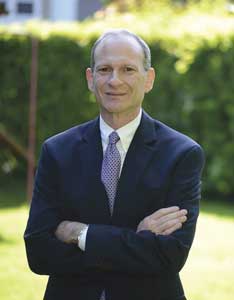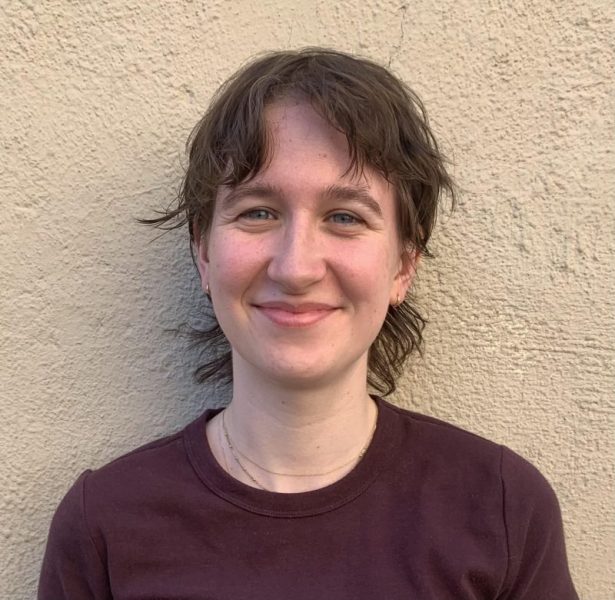Impending Marijuana Sales, Consumption Decision in White Plains Debated

Are marijuana dispensaries and on-site consumption lounges coming to White Plains? The White Plains Council of Neighborhood Associations (WPCNA) discussed this topic at length during its Oct. 12 meeting.
To date, White Plains Mayor Tom Roach and the Common Council have not taken a public position, nor have they invited members of the public to express their views on the issue. Should the city choose to opt-in, they do not need to take a formal vote, as opt-in happens by default. If a municipality chooses to opt out, they must do so ahead of the Dec. 31 deadline.
Councilman Justin Brasch was in attendance at the meeting, as well as two candidates vying for a seat on the Common Council in the upcoming election: Allan Grafman (R, Common Sense) and Rich Payne (D).
“We’re here to express opinions so that our elected officials can hear what the people in this room have to say but also to inform us,” said Mike Sanchez, President of the Rosedale Residential Association. “I think that everyone here, whether you agree with [dispensaries] or not, wants the city to hold public forums so that they can hear what the residents have to say.”
Harrison residents Carla and Michael Bowers, who own The Green Room WP, a CBD store on Mamaroneck Avenue, fielded many questions from attendees at the meeting on the Marijuana Regulation and Taxation Act, New York State’s cannabis law approved by former Gov. Andrew Cuomo and state lawmakers last spring.
“The Office of Cannabis Management just met for the first time last week,” Carla Bowers said. “We don’t know what [the regulations] will entail yet, but the members of the [Cannabis Control] Board have finally been named and the regulations will be forthcoming.”
While language in the law has legalized possession of three ounces of cannabis for people over 21, the regulations for localities, the licensing process and social equity provisions are still being laid out.
“You are allowed to smoke marijuana in White Plains and throughout the state anywhere you smoke a cigarette,” said AnneMarie Encarnacao, President of the Highlands Civic Association. “So thinking about opting out is not stopping that.”
Michael Bowers said that opting in would generate more revenue for all White Plains businesses.
“Yonkers and New Rochelle are going to opt-in and they’re big cities, so why wouldn’t White Plains?” Bowers said.
Bob Friscia, President of the North Street Association, posed a question on whether cannabis use is a gateway drug, leading people to use higher-level drugs.
“I’m not an expert on this, but it’s my understanding that marijuana is not a gateway to worse or stronger drug abuse,” Brasch said. “That’s what the studies that I have seen said.”
Although studies of large populations of people have found that those who use marijuana are more likely to use other drugs, these studies show correlation without causation. While marijuana use may correlate with harder drug use, alcohol and tobacco use, as well as underlying socioeconomic factors, can too.
“I’ve seen a lot of hardworking therapists work with folks that have problems with substance abuse, and that’s a reality,” said Payne, who works at St. Vincent’s Hospital. “So, I’m cautious, but I think it’s important for the citizens of White Plains to be heard.”
Marie Silverman Marich of the Gedney Association questioned the Bowers’ motive for their support of having dispensaries and on-site consumption lounges within city limits.
“These people are here as business owners to make money,” Silverman Marich said. “But some of us have a vested interest in this actual community, some of us actually grew up here, some of us are generational.”
Silverman Marich also expressed concerns that marijuana that is being made now is much stronger than it was in the 1970s and may be laced with other materials.
“The strength and the toxicity that you’re afraid of are not unfounded,” Carla Bowers said. “However, the illicit black market, that’s what you should be afraid of.”
Bowers said having legal dispensaries in the community will allow residents to purchase products that will be highly regulated and grown within the state instead of those sold on the street illegally.
“We’re taking the people that have been incarcerated out of jail for these offenses, and that’s all part of the social equity and the social outreach that you have to keep in mind,” Bowers said. “It’s not all about making money, and I take offense to that.”
When asked whether the Common Council has discussed this issue, Brasch said he has had consultations with council members and the mayor. But at this time, he does not know whether a public forum will be held.
Grafman said White Plains residents are struggling to figure out how they’re going to be heard.
“I am for moving upstream on these types of issues, and when you move upstream, you get input and you don’t deal with the symptom, you deal with the issue,” Grafman said. “And the issue is what do the residents of White Plains want? At this stage, no one can speak to that issue.”
Carry Kyzival of the North Broadway Citizens’ Association encouraged the Council to hold a public hearing and be transparent with the community.
“It is the role of the elected officials of our administration is to inform the public what is going on so that the public can express their opinion,” Kyzivat said. “At this point, nobody knows anything, and that’s not democracy.”

Bailey has journalism experience covering local news in Westchester and Putnam counties and New York City on topics related to LGBTQ+ issues, women’s rights, climate change, the environment, and local politics. They have been a full-time reporter with Examiner Media since July 2021. Read more details from Bailey’s bio here. Read Bailey’s archived work here: https://www.theexaminernews.com/author/baileyhosfelt/
